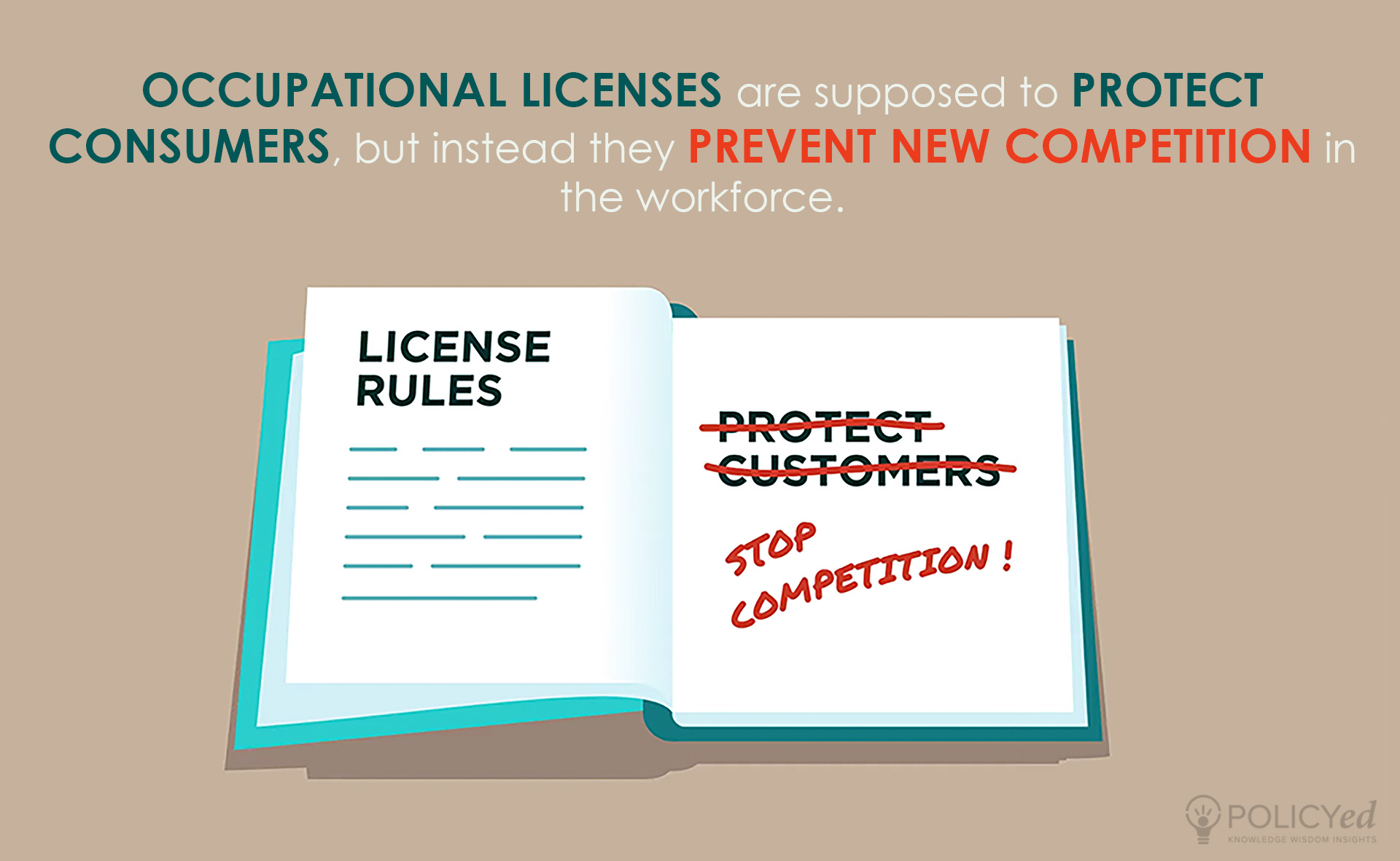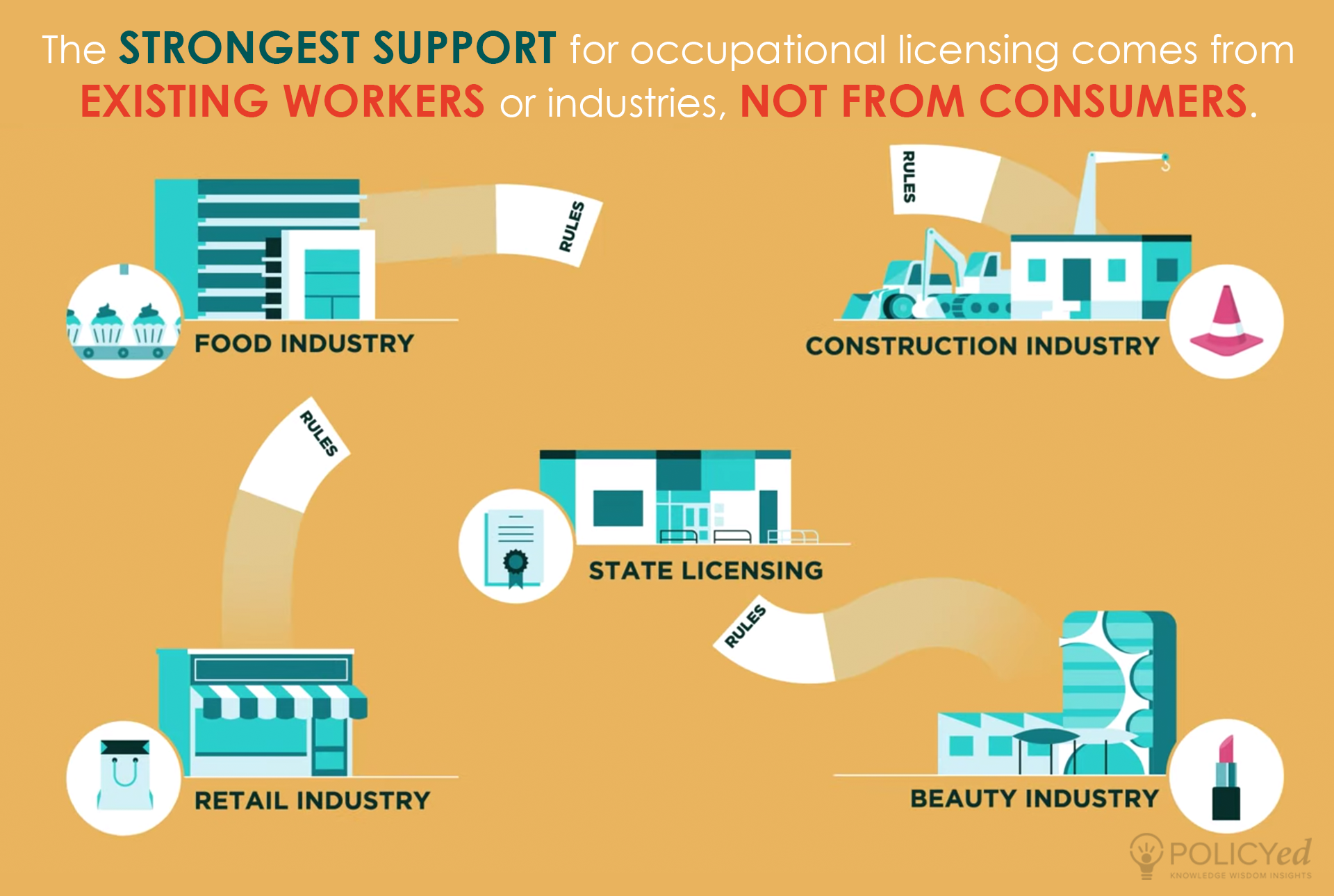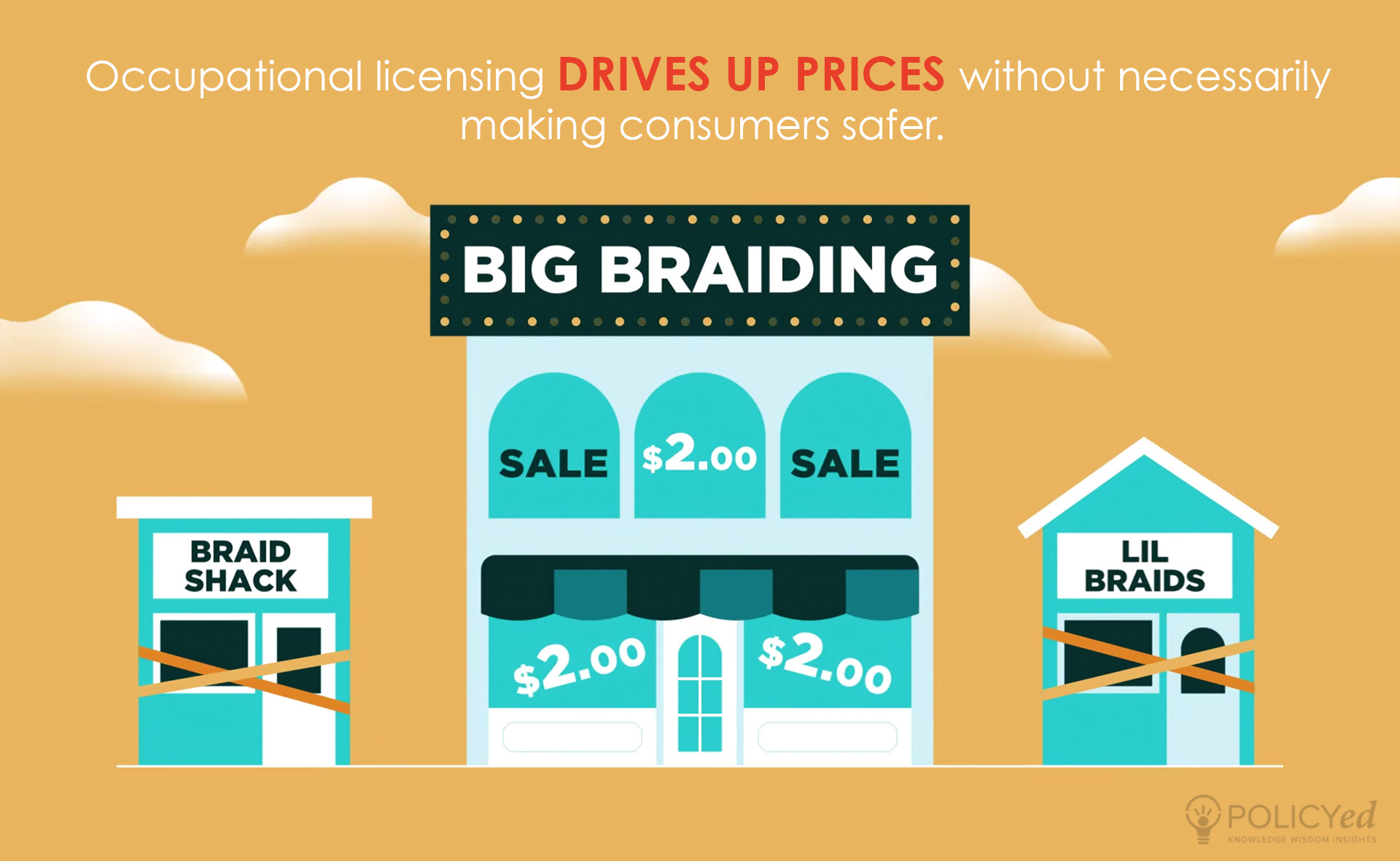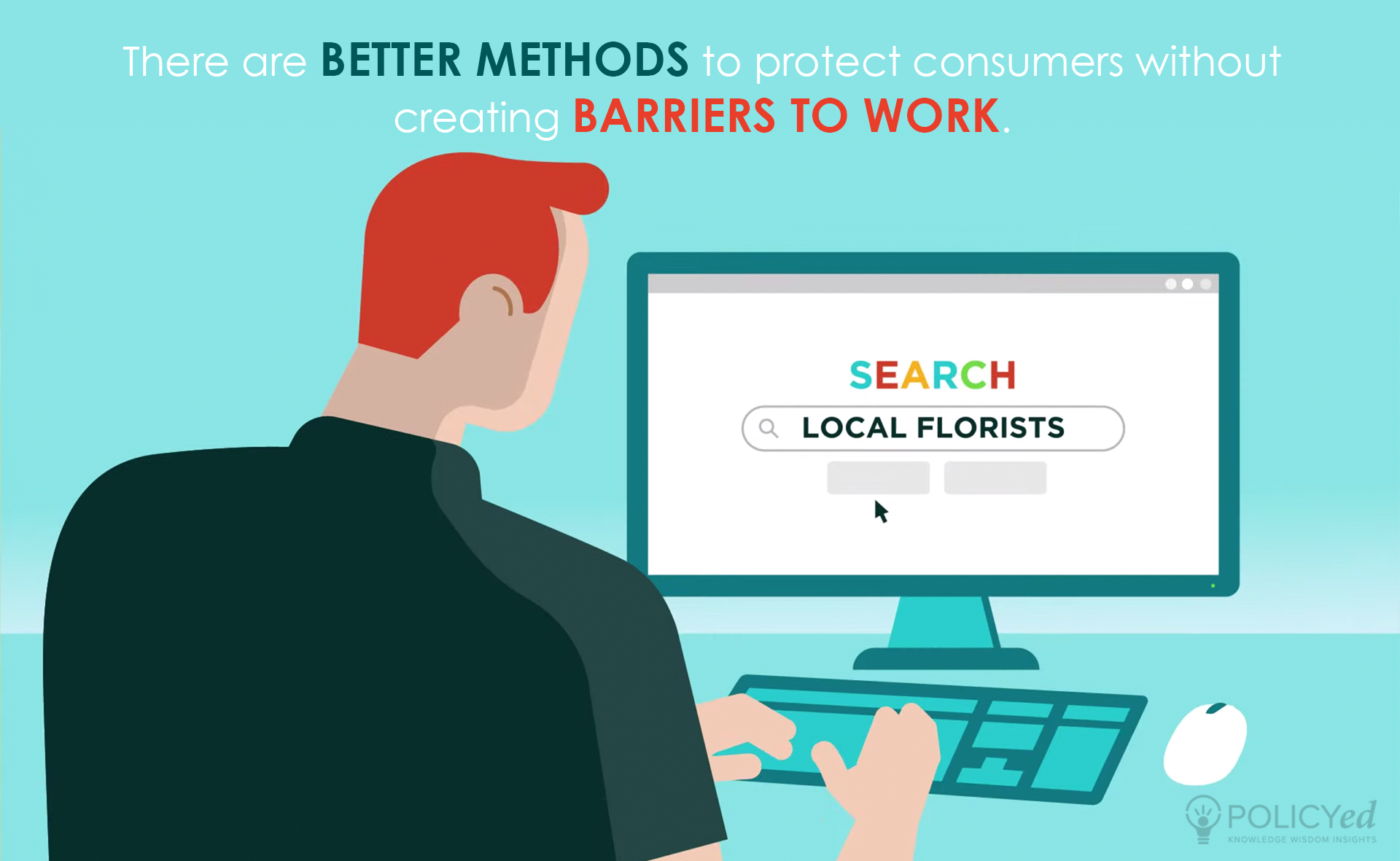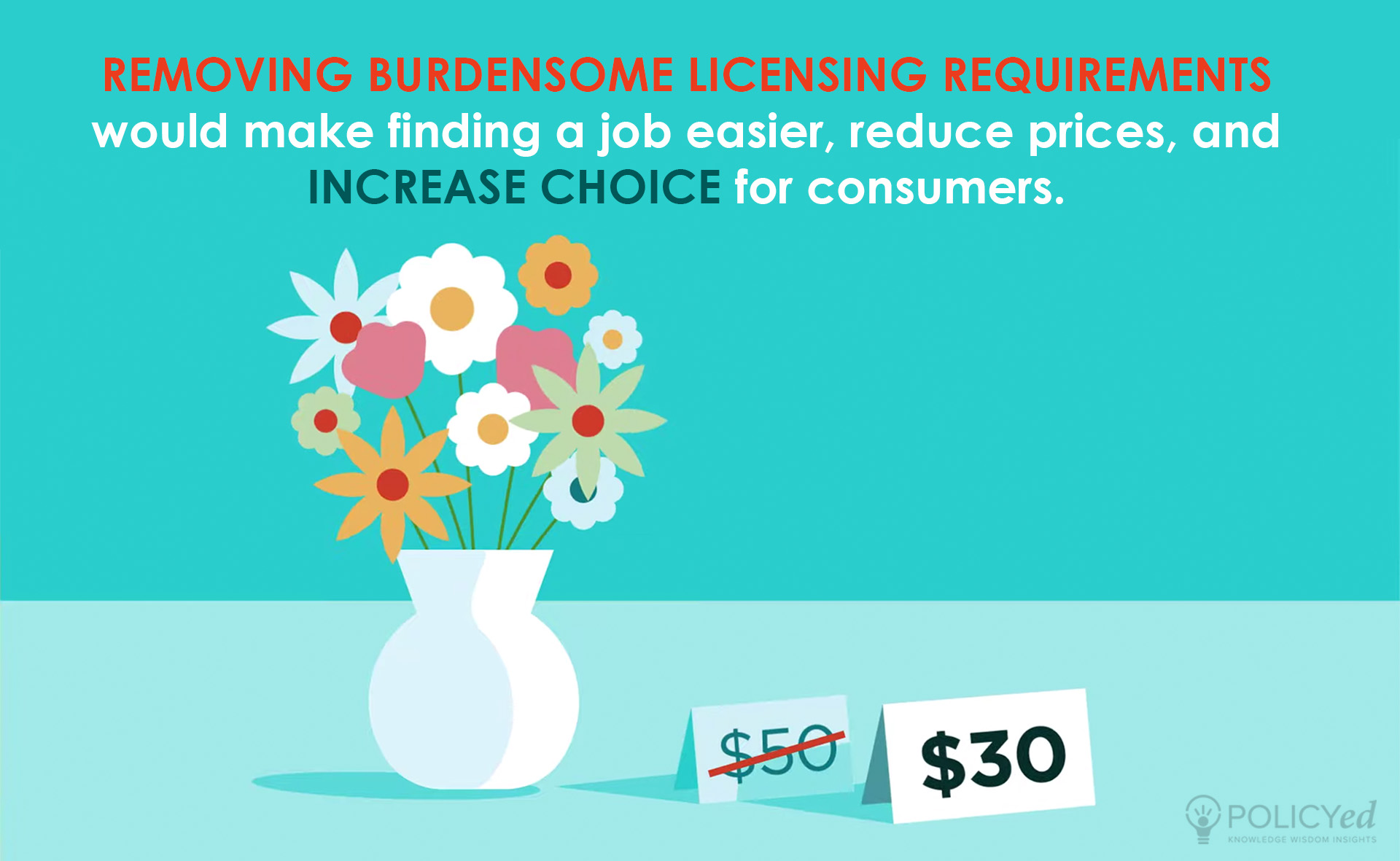Key Facts
The Truth About Occupational Licensing
The stated objective of occupational licenses is to protect consumers by certifying that workers or suppliers have passed rigorous safety tests. But under the guise of safety, occupational licenses have expanded to become so onerous that they actively prevent new competition without corresponding benefits to consumer safety.
Who Supports Occupational Licensing?
If occupational licensing were truly about consumer safety, then one would expect that consumer safety groups were the key supporters of laws that regulate licensing. The truth is that the strongest support for occupational licensing comes from the workers or industries that already have their rights to work. They support the licensing requirements because they make it harder for new workers or businesses to compete with them.
Better Ways to Protect Consumers
In the age of Yelp, Google Reviews, or other consumer-facing internet aggregators, many occupational licensing requirements are redundant or otherwise unnecessary. In industries that do not put consumers in any physical danger, occupational licenses only act as handouts to incumbents.
Removing Occupational Licensing Requirements
Many occupational licenses are unnecessary and increase costs to consumers while benefiting incumbent workers. Eliminating them would provide many more opportunities to workers in affected industries. It would also lower prices for goods or services and lead to a more dynamic market.

